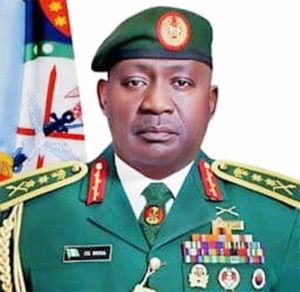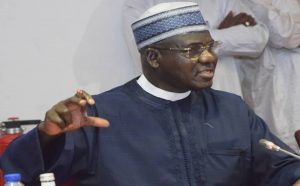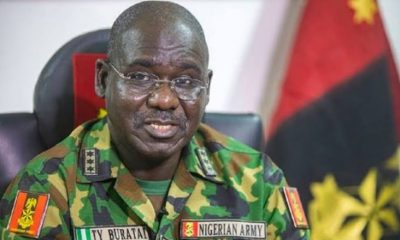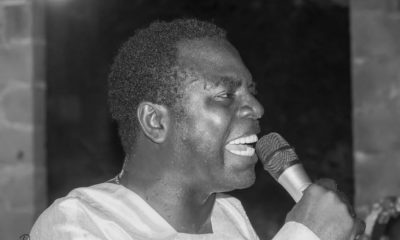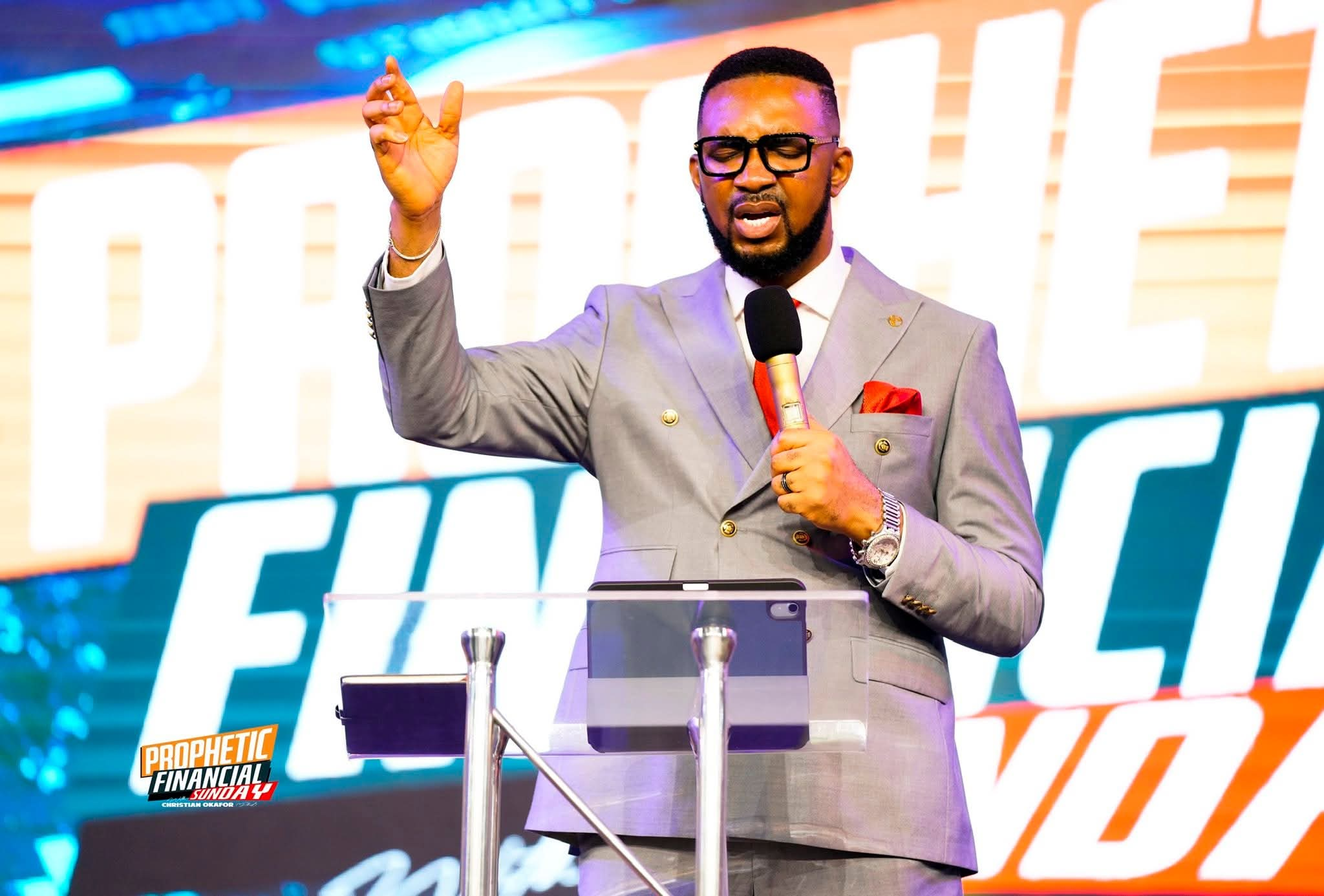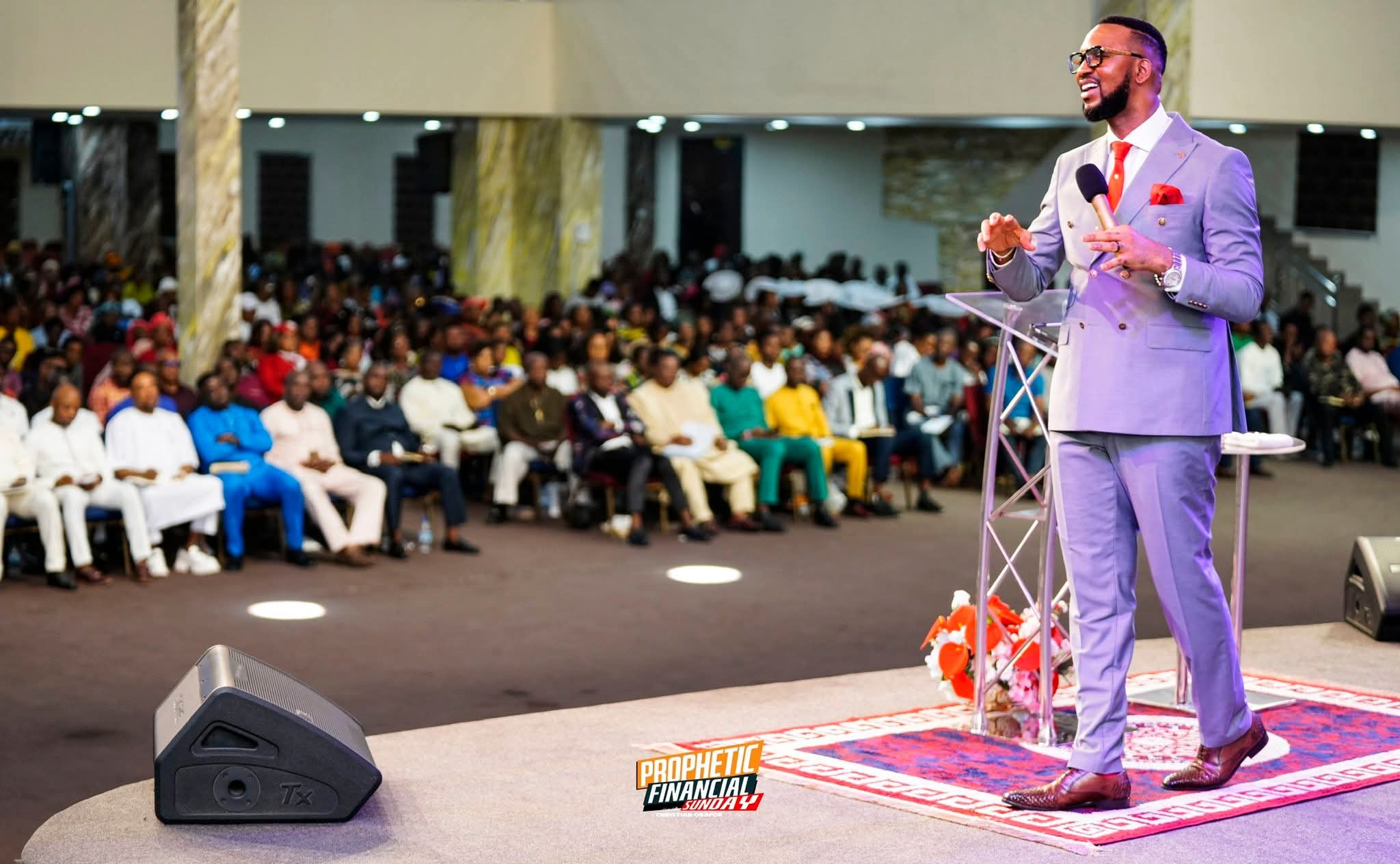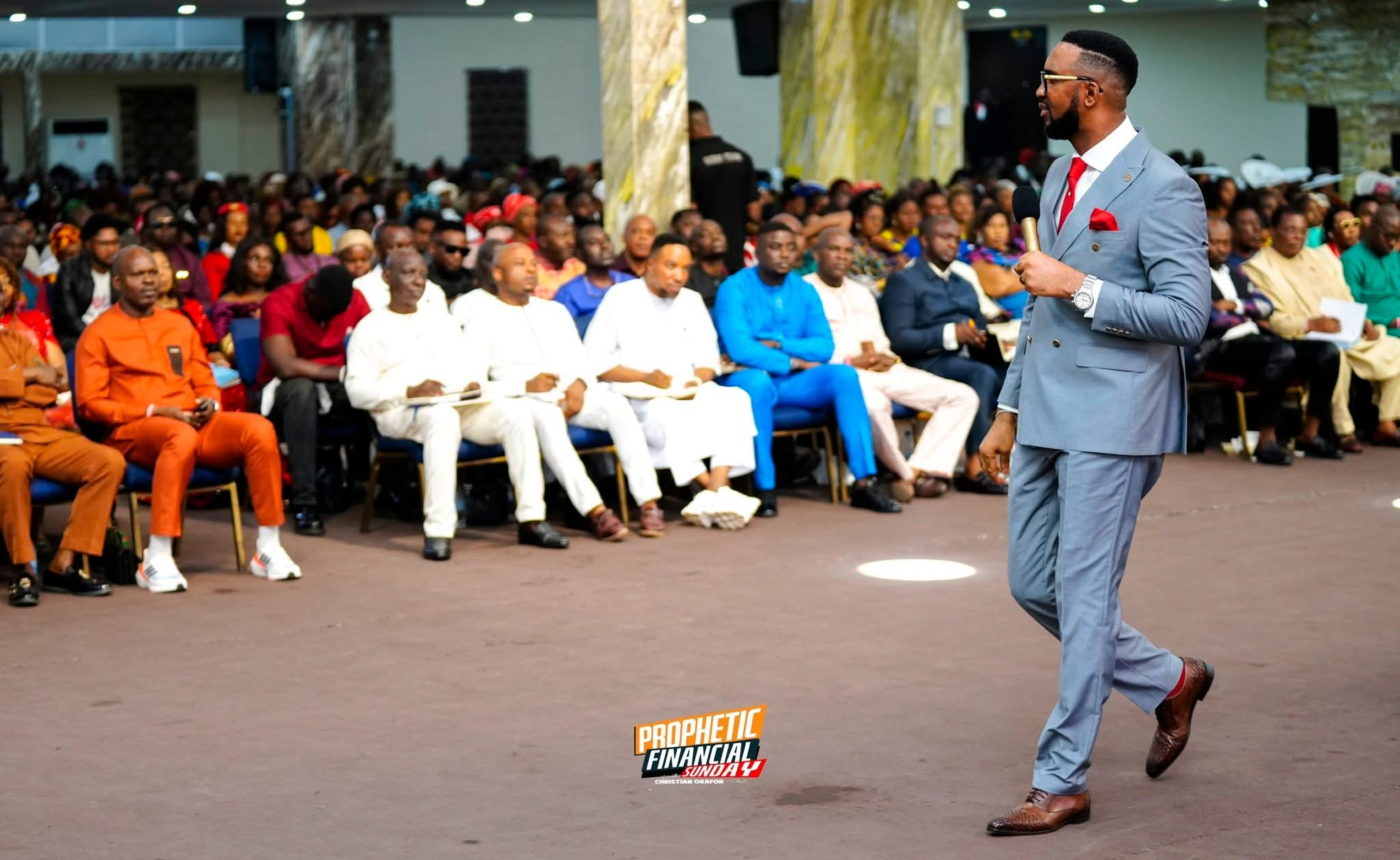celebrity radar - gossips
COAS Lagbaja Declares No Room For Coup In Nigeria
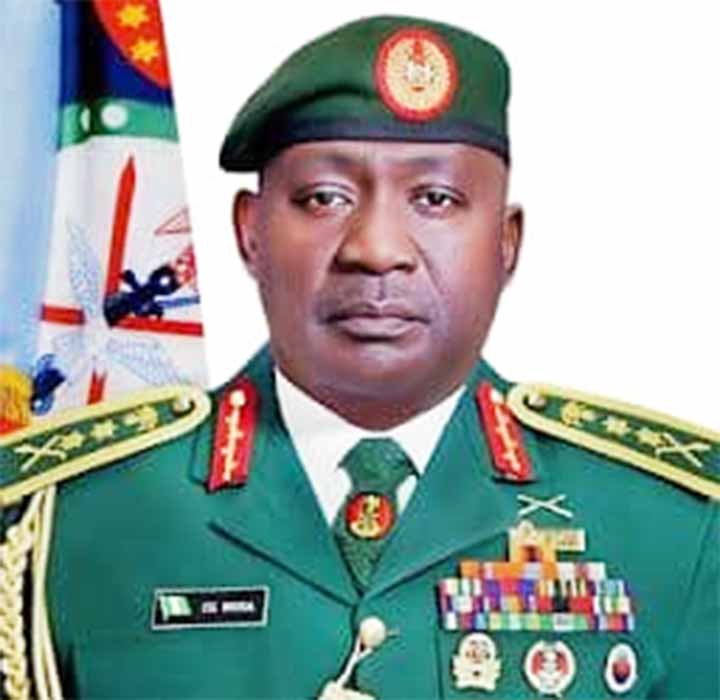
COAS Lagbaja Declares No Room For Coup In Nigeria
Against the backdrop of recent military coups in West and Central Africa, Nigeria’s military high command is serially pledging its loyalty to the constituted civilian authority and warning its rank and file against any coup thoughts. But these pledges are putting Nigerians on edge, Louis Achi writes
A former Chief of Army Staff, and ex-Nigerian Ambassador to Benin Republic, Lt. Gen. Tukur Buratai (rtd) had on December 4, 2020, sternly warned officers and men of the Nigerian Army to perish the idea of any coup attempt in Nigeria. Did he foresee the series of military coups that would sweep out civilian administrations and put the West and Central African regions on edge?
According to the ex-army boss, the Army hierarchy was aware that some generals were being approached, adding that his eyes were on them. “Democracy has come to stay. We will not tolerate any agent of destabilization. The years of military misadventure in politics have never carried us anywhere. It is over…Don’t hobnob with politicians,” he had declared.
Buratai, who many believe missed a ministerial portfolio under President Bola Tinubu’s administration by the whiskers, spoke as if he had a premonition of the coup storms sweeping Nigeria’s continental neighbourhoods.
More recently, the current Chief of Army Staff, Lieutenant General Taoreed Lagbaja, had declared that the Nigerian military would always defend the nation’s democracy at all costs using every constitutional means.
Lagbaja spoke at the recent Passing Out Parade of officers of Executive Commission Course One of the Army School of Infantry, Jaji, Kaduna State.
“He emphasised that the desire of every Nigerian is a flourishing, uninterrupted constitutional democratic governance, that promotes national values and the interest of every well-meaning Nigerian, irrespective of ethnic or religious affiliation,” the Director, Army Public Relations, Brigadier General Onyema Nwachukwu, reportedly said in a statement.
“I, therefore, charge all Nigerian Army personnel to be proud champions of our flourishing democracy and remain apolitical in discharging their constitutional duties,” the COAS added.
The General Officer Commanding (GOC) 81 Division, Nigerian Army, Maj. Gen. Mohammed Usman had also recently warned those he labelled disloyal soldiers to quit the army and affirmed that military personnel must remain loyal to the president, Chief of Defence Staff, down to their brigade commanders.
Usman who apparently prioritized loyalty to President Tinubu and the Chief of Defence Staff over loyalty to the constitution, charged soldiers to be professional and exhibit total loyalty to constituted authority.
Addressing soldiers at the 35 Artillery Brigade, Alamala, Abeokuta, Ogun State, the GOC noted that there were some challenges, but added that they were not peculiar to Nigeria.
“You have to be loyal. There is no room for soldiers who are not loyal to constituted authority. If you are not going to be loyal, then, leave, go and do other work. But the armed forces cannot stand it if you are not loyal,” he said.
This spate of warnings and declarations of loyalty to the President is making many nervous because of its deeper connotations. Are these self-serving, rhetoric or genuine resolve to defend the Constitution?
Penultimate Saturday, it was the turn of the Chief of Defence Staff (CDS), General Christopher Musa, who declared that the Armed Forces of Nigeria (AFN) remained in support of sustained democratic rule in the country.
Speaking at a meeting with military commanders in Abuja, the defence chief, who vowed to deal decisively with threats to national security, said security forces must do all it takes to ensure that democracy thrives in Nigeria. He vowed that all threats to national security must be decisively dealt with.
“Democracy remains what we stand for. We must do everything humanly possible to sustain democratic rule. We have the trust and support of Nigerian people. We must honour that thrust,” Musa said.
The military has been an important institution for protecting the country from external threats since antiquity.
It has been widely observed that military intervention in politics appears to be often associated with perceived electoral illegitimacy, economic crisis and stagnation of growth. In a study of intervention in politics by the military in Latin America, Martin C Needler, author of Mexican Politics and former Dean of the School of International Studies at the University of the Pacific in Stockton, California, suggested that governments were more likely to be overthrown by force when economic conditions deteriorated. When conditions were improving, the military was unlikely to intervene in politics.
It is estimated that there have been at least 100 successful coups in Africa in the past four decades, with more than twice the number of coup attempts. Most military takeovers are initiated by disgruntled junior military officers, who are later supported by a few senior officers. Within days or hours they capture power by detaining or forcing the leaders to step down – as in the case of Mali.
Instructively, four of the recent coups were staged by close guards meant to protect the presidents in their various countries. The alleged coup leader in Gabon, Brice Oligui Nguema, was the head of the Gabonese Presidency’s Republican Guard, the country’s most powerful security unit.
In Niger, the Presidential Guard led by General Abdourahmane Tchiani launched the coup that ousted President Mohamed Bazoum, and had since July 26, detained him and his family.
Guinean Colonel Doumbouya, then a 41-year-old and former French legionnaire and commander of the country’s elite Special Forces Group shot his way to power in September 2021.
On August 18, 2020, a young group of officers in Mali’s armed forces led by Colonel Assimi Goïta, staged a coup d’état, arresting the beleaguered President Ibrahim Boubacar Keita and Prime Minister Boubou Cisse. He was head of the Malian Special Forces before staging the coup that brought him to power.
In January 2022, Burkina Faso’s army ousted President Roch Kabore, blaming him for failing to contain violence by Islamist militants. A second coup in September 2022, brought the current junta leader, Captain Ibrahim Traore to power.
Chad’s army took power in April 2021, after President Idriss Deby was killed on the battlefield while visiting troops fighting rebels in the north. Deby’s son, General Mahamat Idriss Deby, was named interim president and tasked with overseeing an 18-month transition to elections.
It has been observed that pattern of reacting to military takeovers with optimism expresses a deep-seated frustration with civilian leaders in Africa, some experts say.
“The seeming support of the militaries taking over is an indirect support, it is not support for the military,” Leena Koni Hoffmann, an Africa programme associate fellow with London-based think tank, Chatham House, told Al Jazeera.
“It is an opportunity to say that the government that has been overthrown is a government that does not represent our interest fully,” she said.
In all, the emerging consensus points to good, empathetic governance and focused leadership as crucial factors to assure state stability. In addition, the political class needs to play by the rule and strive to improve the living standard of the people. If these conditions are fulfilled, any attempt to thwart democracy will be resisted in Africa.
celebrity radar - gossips
Kingdom Advancement: God Does Not Confirm Lies or Gossip — He Confirms His Word .” — Dr. Chris Okafor
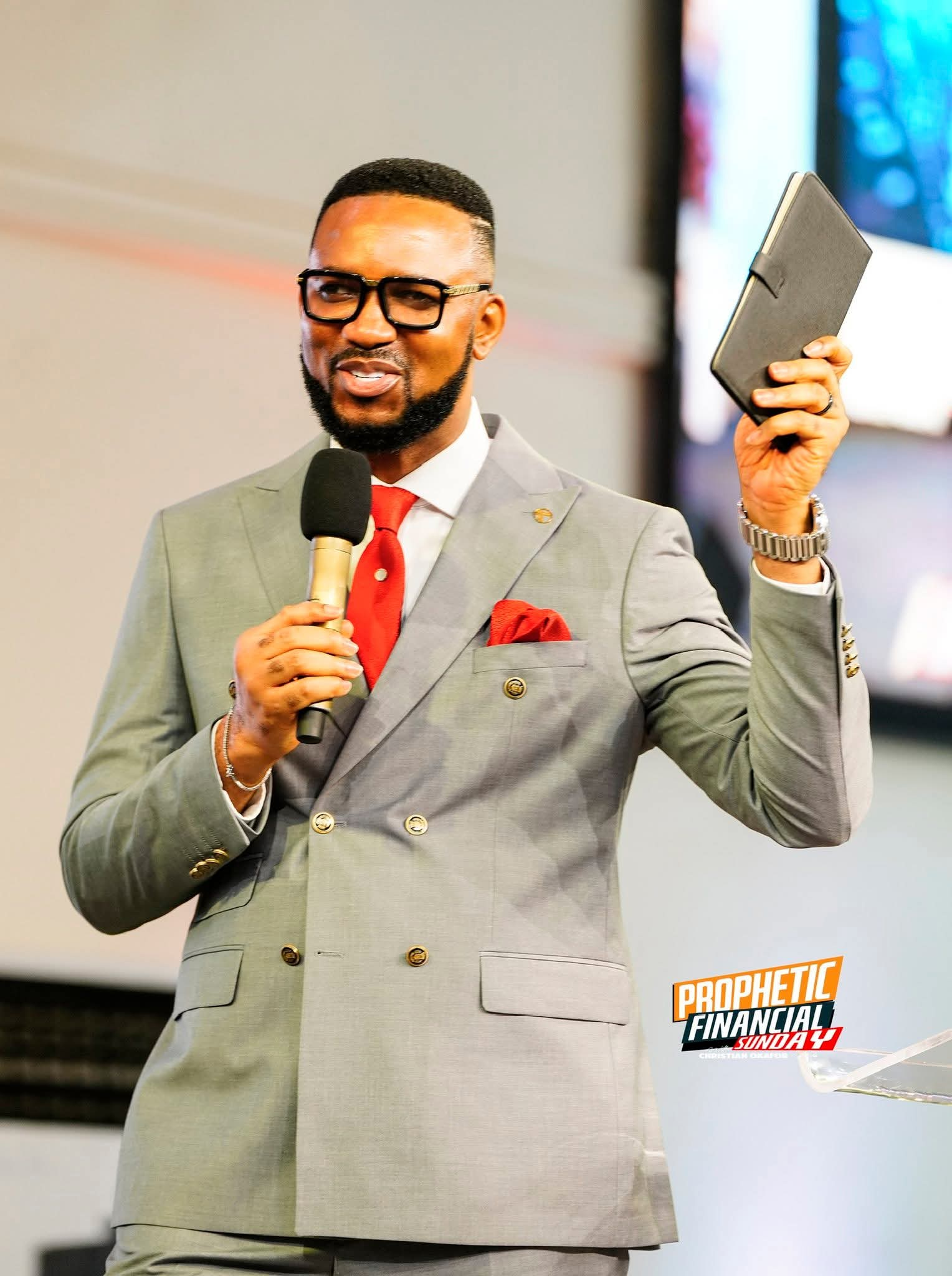
Kingdom Advancement: God Does Not Confirm Lies or Gossip—He Confirms His Word
“When Doing Business with God,
People’s Opinions Do Not Count.”
— Dr. Christian Okafor
The greatest investment any Christian can make is partnering with God. According to the Generational Prophet of God and Senior Pastor of Grace Nation Global, Christopher Okafor, when a believer commits to serving and advancing God’s kingdom, no barrier, lie, gossip, or blackmail can prevail against them.
This message was delivered during the Prophetic Financial Sunday Service held on February 15, 2026, at the international headquarters of Grace Nation Worldwide in Ojodu Berger, Lagos, Nigeria.
Doing Business with God
Teaching on the theme “Kingdom Advancement” with the subtitle “Doing Business with God,” Dr. Okafor emphasized that when a believer enters into covenant partnership with God, divine backing becomes inevitable.
“God is still in the business of covenant,” he declared. “When you make a covenant with Him, He honors the terms. When you win souls into the kingdom and remain committed to His work, He rewards you with what you could never achieve by your own strength.”
The Man of God stressed that God does not confirm lies, gossip, or negative narratives—He confirms His Word. Therefore, anyone genuinely committed to kingdom business should not be distracted by public opinion.
“No matter the blackmail or falsehood circulating around you, if you are focused on God’s assignment, those attacks will only strengthen you,” he stated.
He further noted that a believer’s understanding of God’s covenant determines their experience. “Your mentality about God’s covenant becomes your reality. When you truly know the God you serve, no devil can move you.”
Biblical Examples of Kingdom Partnership
Dr. Okafor cited several biblical figures who prospered through their partnership with God:
Abel
Abel served God with sincerity and offered his very best. His sacrifice pleased God, demonstrating that when a master is honored, he responds with favor.
David
David’s heart was fully devoted to God, and in return, God’s presence and favor rested upon him throughout his life.
Hannah
Hannah made a covenant with God, promising that if He blessed her with a child, she would dedicate him to His service. After fulfilling her vow, God rewarded her abundantly, blessing her with additional children.
Peter
Peter, a professional fisherman, surrendered his boat at Jesus’ request for kingdom work. Through that act of partnership and obedience, he experienced supernatural provision and divine elevation.
Conclusion
In closing, Dr. Okafor emphasized that one’s approach to God’s covenant determines the level of success and prosperity experienced. Commitment to kingdom advancement secures divine confirmation and supernatural results.
The Prophetic Financial Sunday Service was marked by prophetic declarations, deliverance, healings, miracles, restoration, and solutions to diverse cases presented before Elohim.
celebrity radar - gossips
At 55, Omoyele Sowore Remains a Defiant Voice of Conscience
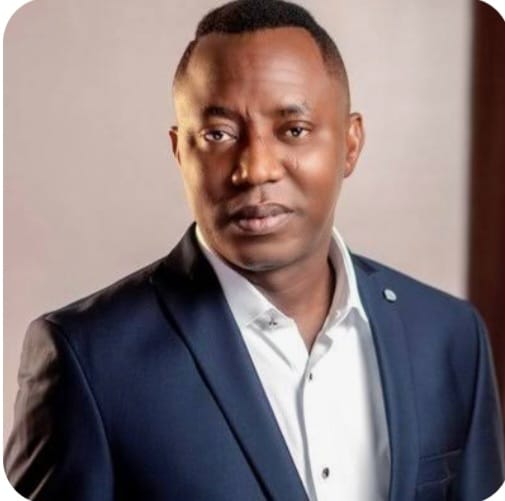
At 55, Omoyele Sowore Remains a Defiant Voice of Conscience
By George Omagbemi Sylvester | Published by SaharaWeeklyNG
“SaharaWeeklyNG Management and Staff Salute a Relentless Campaigner for Justice and Democratic Accountability.”
As activist, journalist and politician Omoyele Sowore marks his 55th birthday, the management and staff of SaharaWeeklyNG join millions of Nigerians at home and in the diaspora to celebrate a man widely regarded as one of the most persistent and fearless voices for democratic accountability in modern Nigeria.
Born on February 16, 1971, in Ondo State, Sowore rose from student activism at the University of Lagos to become one of the country’s most recognisable pro-democracy figures. His early involvement in the student movement during the military era of the 1990s placed him at the forefront of protests against dictatorship and repression, a role that would shape the course of his life and career.
He later founded Sahara Reporters in 2006, an online investigative platform that quickly gained prominence for exposing corruption, abuse of power and human rights violations. Operating initially from the United States, the outlet became a symbol of citizen journalism and digital activism, publishing stories often ignored or suppressed by mainstream media. Over the years, the platform has reported on high-level corruption cases, electoral malpractices and security failures, earning both praise and fierce criticism from political authorities.
Sowore’s activism took a dramatic turn in 2019 when he contested Nigeria’s presidential election under the African Action Congress (AAC). Although he did not win, the campaign amplified his calls for systemic reform. Months later, he launched the #RevolutionNow movement, a nationwide protest demanding an end to corruption, economic hardship and insecurity.
In August 2019, he was arrested by Nigeria’s Department of State Services (DSS) on charges of treasonable felony. His detention, which lasted several months despite court orders for his release, sparked international condemnation from human rights groups, civil society organisations and foreign observers. The case turned him into a global symbol of resistance against state repression.
Over the years, Sowore has faced multiple arrests, court trials and travel restrictions. Yet he has remained resolute, insisting that his activism is rooted in the constitutional right to freedom of expression and peaceful assembly. Supporters describe him as a principled crusader against injustice, while critics accuse him of political extremism. Regardless of the perspective, his impact on Nigeria’s political discourse is undeniable.
His life’s work echoes the enduring words of Nelson Mandela, who once said, “Freedom is not merely to cast off one’s chains, but to live in a way that respects and enhances the freedom of others.” For many of Sowore’s followers, his sacrifices represent precisely that spirit, an unyielding struggle for a more accountable and equitable society.
Similarly, the philosophy of Martin Luther King Jr. (that “injustice anywhere is a threat to justice everywhere”) resonates deeply with the trajectory of Sowore’s activism. Whether confronting police brutality, electoral irregularities or economic injustice, he has consistently framed his struggle as one for the collective dignity of Nigerians.
Nigerian Nobel laureate Wole Soyinka once observed that “the man dies in all who keep silent in the face of tyranny.” That sentiment captures the essence of Sowore’s public life. For over three decades, he has refused silence, even when it meant imprisonment, harassment and personal sacrifice.
At 55, Sowore’s journey is far from over. He remains active in political advocacy, civil rights campaigns and public commentary, continuing to challenge what he describes as systemic failures in governance and leadership. His career reflects both the promise and the peril of dissent in a fragile democracy; where the line between patriotism and confrontation is often fiercely contested.
On this milestone birthday, SaharaWeeklyNG management and staff recognise Sowore not merely as an individual, but as a symbol of the enduring struggle for transparency, justice, and democratic renewal. His story is one of conviction under pressure, a reminder that the quest for a better society often demands courage, resilience and a willingness to stand alone.
As Nigeria navigates its complex political and economic realities, figures like Sowore continue to shape the national conversation. Whether praised or criticised, his voice remains a constant in the country’s democratic journey; loud, uncompromising and impossible to ignore.
celebrity radar - gossips
Banwo Accuses Alex Otti Administration of Governance by Propaganda
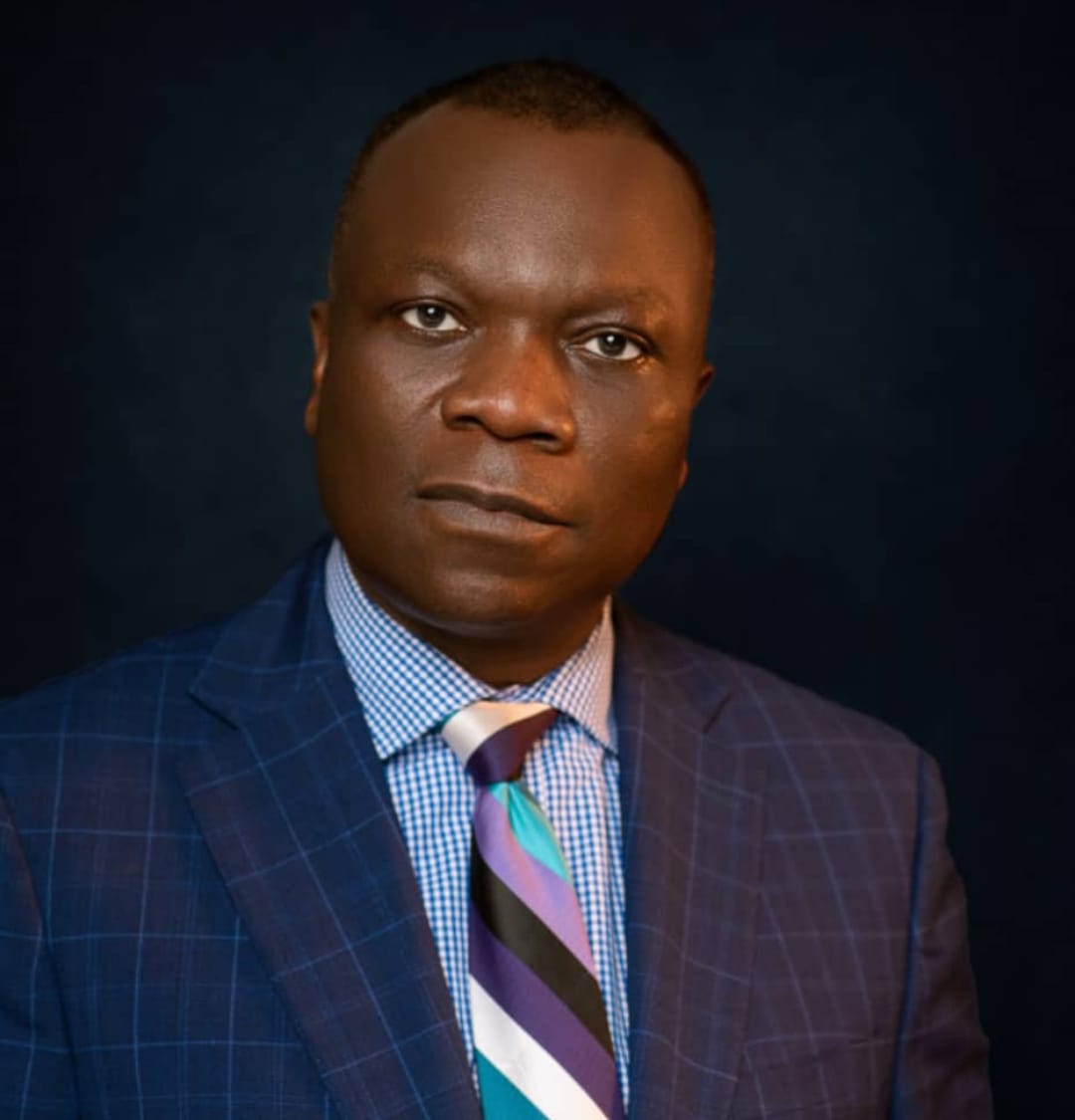
Banwo Accuses Alex Otti Administration of Governance by Propaganda
Public commentator and lawyer Dr. Ope Banwo has criticised the Abia State Government under Governor Alex Otti, accusing the administration of running what he described as a “propaganda-driven government” built on exaggerated claims and selective messaging rather than measurable governance outcomes.
In a detailed commentary, Banwo argued that while Abia State has recorded some progress in specific sectors, the government’s media machinery has inflated limited achievements into what he called “statewide miracles,” creating a disconnect between online narratives and lived realities.
Banwo, who said he initially viewed Governor Otti as a symbol of hope following the 2023 elections, noted that his concerns emerged after engaging residents and professionals living in Abia to verify widely circulated claims about infrastructure, power supply, healthcare, and transportation.
Central to Banwo’s critique is the portrayal of Abia as a state with uninterrupted electricity. He acknowledged the existence of the Aba ring-fenced power arrangement involving Aba Power and Geometric Power but argued that the arrangement has been misrepresented as statewide energy independence.
According to him, extending the Aba power project to represent the entire state amounts to misinformation, especially given acknowledged outages and the limited geographical coverage of the scheme.
He further questioned claims that Abia was the first state to assume intrastate electricity regulation, stating that other states, including Lagos State, had taken similar steps earlier.
Banwo also raised concerns over viral claims suggesting that biogas facilities are already powering Abia communities, arguing that pilot projects have been prematurely presented as fully operational infrastructure.
He noted that residents he spoke with were largely unaware of any functional biogas-powered communities, stressing that government announcements should be backed by publicly available data on scale, output, and sustainability.
On healthcare, the founder of Naija Lives Matters (NLM) questioned reports that Abia offers free medical care to all citizens above 60 years of age for life, describing the claim as unverified and unsupported by legislation, budgetary provisions, or formal policy documents.
Similarly, he criticised claims suggesting that electric vehicles operate widely across the state and that all roads have been tarred, describing such assertions as exaggerated and misleading.
The self-acclaimed Mayor of Fadeyi argued that the core issue is not the absence of development but what he described as a governance style driven by social media optics rather than transparent performance metrics.
He warned that excessive reliance on viral content, influencers, and unverified claims risks eroding public trust and undermining accountability, noting that effective governance requires data, timelines, and measurable outcomes.
“A serious government does not need to exaggerate results,” Banwo said, adding that citizens require reliable services, not slogans.
He also advised the Abia government to avoid constant comparisons with states like Lagos and its governor, Babajide Sanwo-Olu, urging the administration to focus instead on publishing verifiable performance records.
Banwo challenged the Otti administration to release clear documentation supporting its claims, including power coverage maps, healthcare policy instruments, infrastructure project lists, and implementation timelines.
He concluded that while Abia State has not “collapsed,” the growing gap between online narratives and on-ground realities could become more damaging than infrastructural deficits if left unaddressed.
-

 celebrity radar - gossips6 months ago
celebrity radar - gossips6 months agoWhy Babangida’s Hilltop Home Became Nigeria’s Political “Mecca”
-

 society6 months ago
society6 months agoPower is a Loan, Not a Possession: The Sacred Duty of Planting People
-

 society5 months ago
society5 months agoReligion: Africa’s Oldest Weapon of Enslavement and the Forgotten Truth
-

 news6 months ago
news6 months agoTHE APPOINTMENT OF WASIU AYINDE BY THE FEDERAL GOVERNMENT AS AN AMBASSADOR SOUNDS EMBARRASSING

